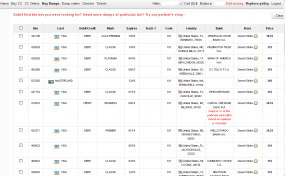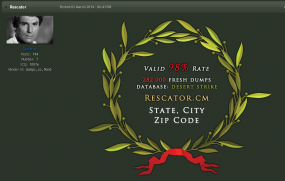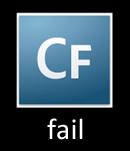Earlier this month, beauty products chain Sally Beauty acknowledged that a hacker break-in compromised fewer than 25,000 customer credit and debit cards. My previous reporting indicated that the true size of the breach was at least ten times larger. The analysis published in this post suggests that the Sally Beauty breach may have impacted virtually all 2,600+ Sally Beauty locations nationwide.
Sally Beauty has declined to speculate on how many stores or total cards may have been exposed by the breach, saying in a statement last week that so far its analysis indicates fewer than 25,000 cards were compromised. But that number seems very conservative when viewed through the prism of data from the cybercriminal shop primarily responsible for selling cards stolen from Sally Beauty customers. Indeed, it suggests that the perpetrators managed to hoover up cards used at nearly all Sally Beauty stores.
The research technique used to arrive at this conclusion was the same method that allowed this reporter and others to conclude that the Target hackers had succeeded at installing card-stealing malware on cash registers at nearly all 1,800 Target locations in the United States.
The first indications of a breach at Target came when millions of cards recently used at the big box retailer started showing up for sale on a crime shop called Rescator[dot]so. This site introduced an innovation that to my knowledge hadn’t been seen before across dozens of similar crime shops in the underground: It indexed stolen cards primarily by the city, state and ZIP code of the Target stores from which each card had been stolen.
This feature was partly what allowed Rescator to sell his cards at much higher prices than other fraud shops, because the ZIP code feature allowed crooks to buy cards from the store that were stolen from Target stores near them (this feature also strongly suggested that Rescator had specific and exclusive knowledge about the breach, a conclusion that has been supported by previous investigations on this blog into the malware used at Target and the Internet history of Rescator himself).
To put the ZIP code innovation in context, the Target break-in came to light just a week before Christmas, and many banks were at least initially reluctant to reissue cards thought to be compromised in the breach because they feared a backlash from consumers who were busy doing last minute Christmas shopping and traveling for the holidays. Rather, many banks in the interim chose to put in place “geo blocks” that would automatically flag for fraud any in-store transactions that were outside the customer’s normal geographic purchasing area. The beauty of Rescator’s ZIP code indexing was that customers could buy only cards that were used at Target stores near them, thereby making it far more likely that Rescator’s customers could make purchases with the stolen cards without setting off geo-blocking limits set by the banks.
To test this theory, researchers compiled a list of the known ZIP codes of Target stores, and then scraped Rescator’s site for a list of the ZIP codes represented in the cards for sale. Although there are more than 43,000 ZIP codes in the United States, slightly fewer than 1,800 unique ZIPs were referenced in the Target cards for sale on Rescator’s shop — roughly equal to the number of Target locations across America.
Sally Beauty declined to provide a list of its various store ZIP codes, but with the assistance of several researchers — none of whom wished to be thanked or cited in this story — I was able to conduct the same analysis with the new batch of cards on Rescator’s site that initially tipped me off to the Sally Beauty breach. The result? There are nearly the exact same number of U.S. ZIP codes represented in the batch of cards for sale on Rescator’s shop as there are unique U.S. ZIP codes of Sally Beauty stores (~2,600).
More importantly, there was a 99.99 percent overlap in the ZIP codes. That strongly suggests that virtually all Sally Beauty stores were compromised by this breach.













